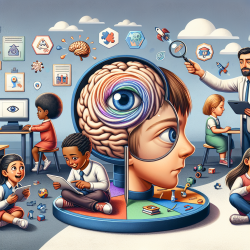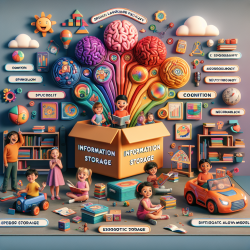Introduction
Attention Deficit Hyperactivity Disorder (ADHD) is often viewed through a narrow lens, leading to misconceptions that can impact educational practices. The research article "ADHD: A Critical Update for Educational Professionals" provides crucial insights that can help educators and therapists like those at TinyEYE make informed, data-driven decisions. This blog will explore key findings from the study and suggest ways to implement these insights to improve educational outcomes.
Understanding ADHD: Beyond the Label
ADHD is the most prevalent childhood psychiatric diagnosis in the USA, with increasing rates over the years. However, the research highlights the importance of understanding ADHD beyond its label. Here are some critical considerations:
- Birth Month Matters: Younger children in a class are often misdiagnosed with ADHD due to relative immaturity. Educators should consider a child's age relative to peers when evaluating behavior.
- No Single Cause: ADHD is not caused by a single factor. It is a behavioral description influenced by various factors, including environmental and genetic elements.
- Normal Brain Variability: Most children with ADHD behavior have "normal" brains. Differences in brain anatomy are often minor and not indicative of a disorder.
Implications for Educational Professionals
For educators and therapists, these insights have significant implications:
- Reevaluate ADHD Diagnoses: Consider the broader context of a child's behavior before jumping to conclusions. Avoid pathologizing normal variations in behavior.
- Focus on Environment: Create an inclusive environment that accommodates different learning styles and needs. This approach can prevent unnecessary medicalization of behavioral issues.
- Long-term View on Medication: While medication can be beneficial for some, it does not offer long-term benefits for most children. Explore alternative strategies such as behavioral interventions and environmental adjustments.
Encouraging Further Research and Collaboration
Educational professionals are encouraged to delve deeper into the nuances of ADHD. Collaboration with researchers and continuous professional development can enhance understanding and improve strategies for supporting children with ADHD.
To read the original research paper, please follow this link: ADHD: a critical update for educational professionals.










